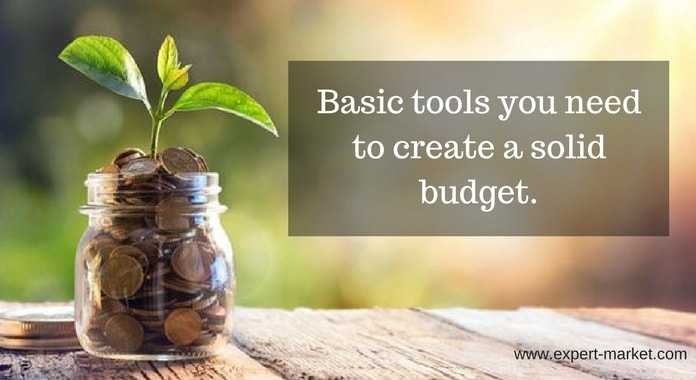Whether you want to bring yourself out of your financial woes or you want to forge a path to financial freedom, creating a budget is an essential part of creating a stable future. These are the basic tools you need to create a solid budget.
Write Down Your Goals
What are you budgeting for? If you’re like most people, you want to accomplish a lot of goals. It could be saving for a new home, preparing for a new baby, embarking on that dream backpacking trip through Europe, or even getting out of debt. Prioritize your needs and your wants so you can get a visual picture of what you’re going after.
Prioritize Your Debts
If you have outstanding debt, it’s crucial that you pay it all off as soon as possible. Debt is the single most important factor that determines your financial freedom, and piles of debt will become a burden fast. If you have debt, don’t be intimidated. The best approach to handling debt is to act immediately. Typically there are two ways to tackle debt. In the first, you list your debts from smallest to largest dollar amount. Those who choose this method then pay off the smallest dollar amount first to tick off debt items faster. This is satisfying to those who have a long list of debt that they want to see disappear. The drawback of this method is that it doesn’t factor in rising interest. Another way to pay off debt is to pay the debt with the highest interest rate first. This is generally the more cost-effective way to dig your way out of debt.
Limit Excess Spending
We all do it—a little lunch hour here and there, a few cocktails, and that impulse buy on a new pair of shoes. If you want to save big for your future, however, it’s time to cut out the little things. Unmonitored spending habits will quickly go out of control and soon you’ll wonder where your whole paycheck went. Save yourself the trouble by changing a few simple habits. To start, try withdrawing only a certain amount of cash every week from your debit account to spend and save your card for emergencies. You should also consider meal prepping for the week. In a meal prep, you plan out your weekly meals ahead of time and you cook in bulk. Go to the grocery store with a prewritten list to keep you from wandering the aisles and picking up things you don’t need. When you shop, try discount options through the Coupons App on your smartphone to get the best deals on food and household items. Check your account in a month and you’ll be amazed at how much you save.
 Build Credit Now
Build Credit Now
Good credit is a huge asset. If you want to buy a home, rent an apartment or buy a car, good credit is a must. Build credit now by opening small credit accounts. Spend smart by allotting a certain amount of your monthly expenses on your card each month. If you don’t want to deal with the hassle of keeping up too much with spending, then opt for a simple method of spending. Initially, use your credit card only on necessities like gas and rent. This way, every month you’ll know what you can expect to pay. As you build credit you can switch to cards that give you points for things like travel, eating out and more.
Hire a Professional
Sometimes the best way to create a budget is to have an expert help you every step of the way. Financial advisors and tax accountants are there to help you reach your goals by organizing your finances. They can analyze your financial information, formulate a strategy, and help you stay out of trouble, with creditors and with the IRS.Advisors have the experience and know-how to navigate tricky situations during tax season and will explain all the details of taxation from the benefits received tax principle to earmarking and everything in between. Soon, you’ll never have to worry about a tax burden again.
Budgeting doesn’t have to be difficult. With these tips and a little discipline, you too can achieve your financial goals.



























